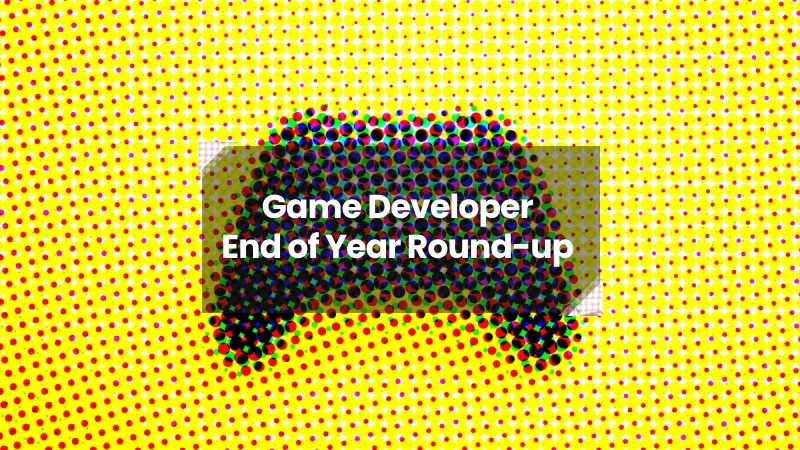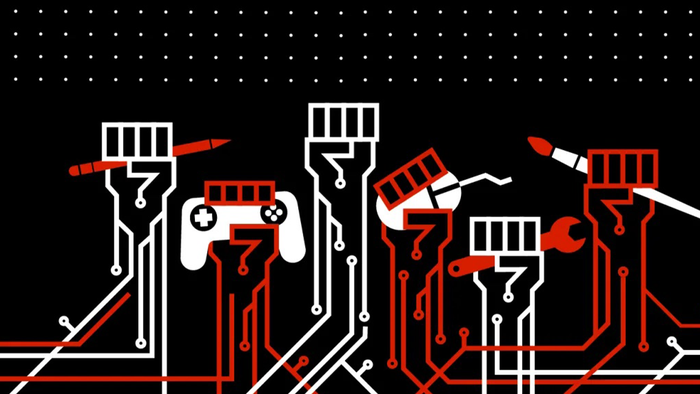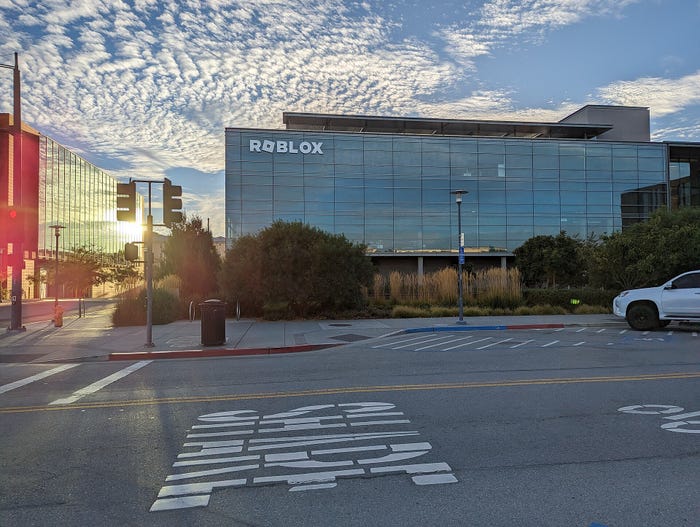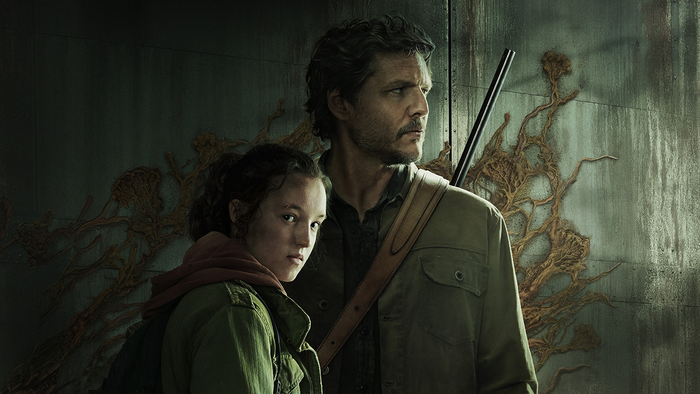Game Developer's 2023 wrap-up: The trends that defined the year
From wildly successful adaptations, ongoing unionization efforts, and a morale-shattering wave of layoffs: these are the trends that defined the game industry in 2023.

It's here at last. The dawn of the final day(s). 2023 is about to melt into the sunset, but there's still time to look back at some of this year's most notable trends before it fades from view.
There's no point in beating around the bush: this has been an incredibly tough year for those who have dedicated themselves to making games. It'd be easy to point to the deluge of stellar releases that launched this year as evidence that 2023 has been nothing short of superlative. It would also be disingenuous.
Without taking anything away from those success stories, this has been a year defined by layoffs, downsizing, studio closures, dwindling investment, and other hurdles that have shattered morale in some corners of the industry.
There have been some trends worth celebrating, such as the ongoing unionization efforts gathering momentum across the industry, but for those in the trenches of development it has been rough. With that in mind, we wanted to end the year with a clear message: support developers, because without them the game industry as we know it simply would not exist.
Here are the trends that shaped 2023.
The rise of generative AI sparks debate

Image via OpenAI
The emergence of generative AI tools like ChatGPT and Dall-E sparked widespread debate throughout the game industry about how the technology could—or perhaps should—be used by developers.
Some game makers expressed concerns over the legality of those technologies and whether or not the text and images they produce infringes on copyrighted work by simply regurgitating and reworking existing content. There are also fears that companies could turn to AI to "streamline" production processes, sacrificing workers in a bid to cut costs.
It's easy to understand why developers are on edge about technology that could he viewed as a shortcut to "restructuring" during a year that has seen widespread layoffs devastate the industry, but that hasn't stopped major companies from throwing their weight behind generative AI and declaring it the Next Big Thing.
Both Microsoft and Sega are advocating for the technology and claim it will make life easier for its development teams, while a number of devs gathered at DICE 2023 seemed tentatively excited by how generative AI tools could eliminate mundane tasks and facilitate rapid iteration. Epic Games has also invited devs leveraging generative AI tech to launch their projects on its digital marketplace, with company CEO Tim Sweeney claiming it's wrong to assume that all generative AI is "terrible or infringing."
Others, however, remain cautious. Humble Games indicated it might restrict AI usage in future publishing contracts, Valve is wary of platforming AI-backed projects on Steam due to legal uncertainties, and voice actors have also been seeking assurances over how their performances will be used in conjunction with AI tools.
AI remains in its infancy, and whatever side of the debate you're on, we expect it to rage into 2024 and beyond.
- Chris Kerr, News Editor
Unionizing game developers fight for a better future

Image via CODE-CWA
Developers are getting organized. 2023 felt like another massive year for unionization in the games industry, with employees banding together in search of better working conditions—despite, at times, seemingly being met with resistance from the powers that be.
Over the last 12 months, we've seen employees (including some contractors) at CD Projekt, Tender Claws, ZeniMax, Sega of America, Workinman, Experis, and Avalanche Studios unionize, following in the footsteps of teams like Raven Software and Blizzard Albany—who embarked on the same journey in 2022.
Some of those unions have already started to hold court to secure more rights for their members.
The almost 400-strong ZeniMax Workers Union recently secured the ability to decide how and when AI tech will be implemented in the workplace following negotiations with parent company Microsoft. Similarly, the SAG-AFTRA voice actors union approved a strike vote to give representatives more leverage as they seek to negotiate a new Interactive Media Agreement with major studios including EA, Activision, and Epic Games.
For some, establishing a union has been made difficult by companies who appear unwilling to relinquish their hold over employees. Sega of America was hit with an Unfair Labor Practice charge in November and accused of deploying union-busting tactics to dismantle the Allied Employees Guild Improving SEGA union. Others such as Epic Games and Proletariat were also accused of using similar tactics in a bid to stifle organization efforts, indicating that some workers looking to take charge of their destiny are still facing an uphill battle.
- Chris Kerr, News Editor
Layoffs envelop the game industry

Image via Pixabay
One of the most difficult—and frankly heartbreaking and overwhelming—trends in the game industry in 2023 has been the waves of layoffs affecting developers of seemingly every shape and size. From redundancies in some of the biggest development teams (see: Bungie, Epic Games) to full studio closures (including Volition), to redundancy notices after certain games may have failed to hit certain metrics (see: Immortals of Aveneum creator Ascendant Studios), it feels we never stopped reporting on layoffs, from the beginning of the year until now.
Unfortunately, there don’t seem to be any signs of stopping, either. If you’ll allow me a brief peek behind the curtain, reporting on layoffs was so common this year that, when putting together topics for our revamped website, we knew that layoffs would be a keyword on the site. It’s a refrain we’ve heard over and over again this year: that 2023 was wonderful for high-quality games (which you can see in our Games of the Year staff lists and podcast), but challenging-to-terrible for the hard working folks who actually bring them to life.
- Danielle Riendeau, Editor-in-Chief
Workers ordered to return to the office

Image via Mliu92 (Wikipedia) // CC BY-SA 3.0
With the "end" of the pandemic (or at the least, any reasonable attempts to limit the spread of COVID) declared this year, for many (like those at Roblox Corp, Activision Blizzard, and Ubisoft Montreal), that also meant the end of working from home.
This social distancing policy had many benefits outside the most direct (like not catching COVID), supporting a more diverse workforce and reducing the carbon footprint of studios across the development spectrum. While working-from-home policies demonstrably lower overhead and increase worker productivity, nonetheless, many studios reversed course, rising in tandem with mass layoffs amid record-high publisher profits.
Reports indicate this is at least in part due to the sunk cost fallacy of real estate; many companies claim they have expensive rental leases to consider. But perhaps, given the ever-decreasing number of jobs in the industry and the increasing calls to unionization, it serves another purpose. It reminds workers exactly who is in charge.
- Holly Green, Community Editorial Coordinator
The transmedia obsession takes hold (and pays off)

Image via HBO
While video games and Hollywood have been linked together for years, 2023 featured one of the stronger pushes toward synergy. HBO's adaptation of Naughty Dog's The Last of Us and Illumination's record-breaking Super Mario Bros. Movie were the hits that they were always fated to be, and had the added benefit of helping to boost sales of their respective franchises.
Other releases made their own impact: Twisted Metal did well enough to earn a season two renewal and remind people Peacock existed, and Netflix had strong showings in Castlevania Nocturne and Captain Laserhawk. The Witcher made something of an ending out of the surprising departure of leading man Henry Cavill, even as the show will live on for at least two more seasons.
And that's just what actually came out. More game-based shows and movies are in the works, some of which are set to release next year. Not all of them are likely to hit the same highs as what was released in 2023 (or even in quite the same way), but the successes of this year's releases does feel like a significant turning point in the future of adaptations and the transmedia singularity all studios are heading towards.
- Justin Carter, Contributing Editor
About the Author(s)
You May Also Like













